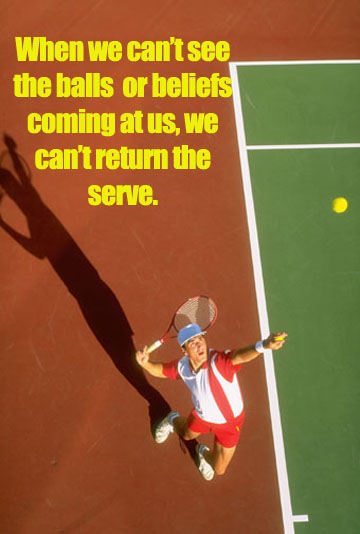The Host
I never thought much about the notion of hosting until visiting Ecuador for a few months. I considered the woman who owned the home I stayed in to be my host. Ironically, I started having problems with my internet provider during that time; of course, they were my “hosting” company. The odd thing was that my hosting company was perfect until I went to Ecuador. Clearly an old belief was coming up for releasing.
I decided to review my memories around hosting in general. Many memories surfaced, and all were the same situation with different people. I’d meet someone in my home or a neutral place, and we’d get along great. Then they’d invite me to their home where they were the host. Now I couldn’t stand them. I felt as if they gave me food and wine in exchange for the whining that I would endure until I could politely escape their house of horrors. One of these people even said to me, “Now you’re on my turf.”
The host role is a masculine role. The true masculine host gives unconditionally. The false masculine host looks like it gives when it actually takes like a parasite; it gives conditionally.
Host and Parasite
The word host has an opposite or a complement, depending on how you look at it — parasite. Wikipedia says, “The host and parasite exert reciprocal selective pressures on each other, which may lead to rapid reciprocal adaptation.”
Humans shouldn’t be adapting to each other’s false selves. Sadly, most relationships have a fragile quality to them. Everyone behaves like tightrope walkers focused on holding the delicate balance. People adapt to the most fragile ones; and everyone is secretly miserable.
A whining host behaves like a parasite, sucking the life out of its guests. As a false masculine, they establishes the tone of the experience for everyone. The false masculine commands the power and control of the masculine role while also receiving the benefits that belong to the feminine role. Consequently, people seek the spotlight in the home or the stage. They get the power, and they get the attention and/or money too. They often label that win-win. Those of us in the feminine role label it lose-lose. We have no power; and we receive things we don’t want.
My internet hosting company pretended to serve me. But they sent me crap that shut down my computer and websites. I felt that I had to protect myself from my own host. Ah, I was now seeing the pattern. I felt the same way when visiting these hosts — like I needed to protect myself. Since I’m not a fan of wrapping myself in white light, I wanted to find out how I ended up in this situation over and over.
Power in the illusion requires getting others to submit to or follow the leader’s beliefs so they can get what they want. If you look at royalty, they give nothing; they have all the power, and boy do they receive.
Both of my hosts wanted me to listen to their self-inflicted problems and feel sorry for them. I was supposed to marinate in their crap and not hold them responsible. I had to pretend the cause of their problem was a mystery. I had to pretend that they were a victim. As a good guest, I was supposed to follow this social norm. It was time to let that go. I’d had enough.
The Escape
We generally feel powerless in the feminine role. We’ve been trained that we can’t or shouldn’t get the masculine host to change. But I’ve discovered that when I completely let go of my feminine role in any drama (including my emotions), the scene does change. When I let go of my feminine role in my relationship with the host, I moved beyond roles (or into a True Masculine place from their point of view). Now I only had to make sure that I didn’t judge or label them. I had to make sure that I was speaking truthfully, not grabbing the stage. Frequently, the host would relax; and our conversation became light, creative, and fun. They became a proper host.
If they just wanted power and control over me (or still thought they did), they’d try to see me as the problem — a parasite. They wanted their beliefs or drama validated. They were now feeling the emotions that they were previously projecting out by whining. The angst was where it belonged, with the whiner (parasite pretending to be a gracious host).
I’d often get trapped at this point because they thought that I was causing their emotions. If I didn’t say anything, they’d often say, “Are you doing something to me?” Often I’d doubt myself. Was I the cause? We live in a strange world where we believe we can say horrible things without paying a price. And when held accountable, people blame the listener or questioner for the emotion they feel.
When I encounter new belief patterns, I go back into my memory and replay old situations with my new understanding. I see the memory as it was; but this time, I also let go. I don’t take in what the other people said; I see their beliefs as just beliefs — powerless, untrue, and certainly not who they are. I watch as the situation changes in my mind. It has to. Of course, it’s perfect in my mental workshop; but my repaired memories become my new history. This sets the tone for my future real life exchanges. Yes, we can change the past.
Eventually, in my mental workshop, I saw that the human opposite of host wasn’t parasite; it was guest. The host now unconditionally gave; and I, the guest, joyously received. Ironically, once I did this inner work, my Ecuadorian host fixed up my room. She started to give to me in many ways. And my internet hosting company took responsibility and fixed their problem.



